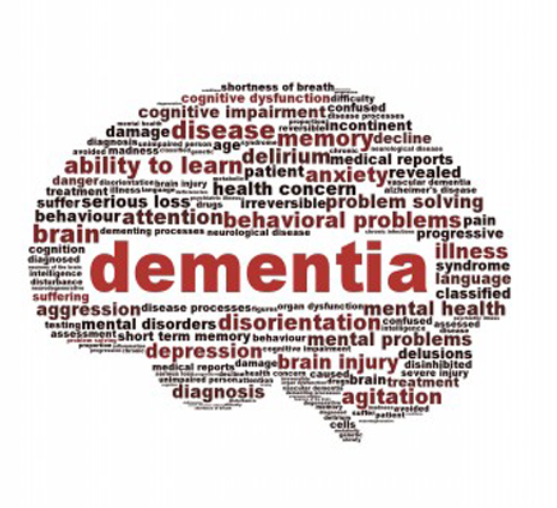While Alzheimer’s is the No. 1 cause, there are various other types of dementia.
Dementia patients often experience gradual changes at first, with a range of symptoms. However, according to the National Institute on Aging, the condition is generally defined as “the loss of cognitive functioning—thinking, remembering, and reasoning—and behavioral abilities to such an extent that it interferes with a person’s daily life and activities.”
Different forms of dementia are also common, though Alzheimer’s disease is by far the most common neurodegenerative disorder. Not only is it anticipated that the number of Americans living with Alzheimer’s disease will increase from approximately 5.8 million to nearly 14 million by 2050, but there will also likely be a significant rise in the overall population suffering from dementia.
Also read-Brain Tumors : A Patient’s Guide To Brain Tumors And Its Symptoms
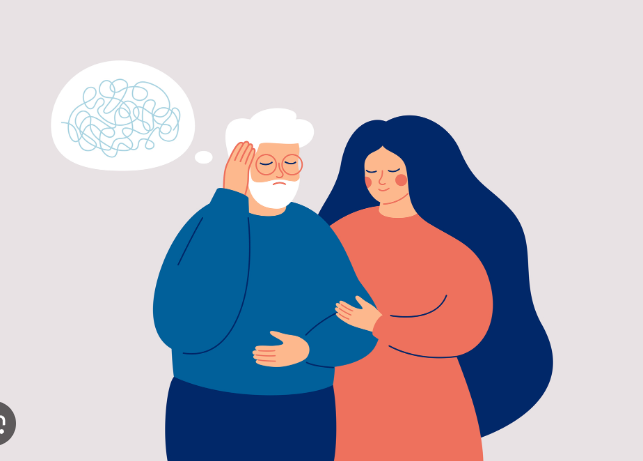
“This explosion is largely explained by the graying of America, where 10,000 people a day turn 65 in the United States,” says Dr. Jeffrey Keller, director of the Institute for Research and Prevention at Pennington Biomedical Treatment Center in Baton Rouge, Louisiana. “Not surprisingly, as you have an explosion in the elderly, you have an explosion in age-related diseases like dementia.”
In addition to advancing age, which is the No. 1 risk factor, genetics can also affect a person’s risk of developing dementia. If you have an immediate family member with it, such as a parent, brother, sister, or child, that raises your risk, Keller points out.
Furthermore, “you’re at increased risk for it if you have diabetes, high cholesterol, or hypertension,” he says. Keller emphasizes the significance of adopting a prevention mindset because some risk factors are modifiable, and lifestyle modifications, such as eating a heart-healthy diet, controlling diabetes, lowering high blood pressure, or cholesterol, may help lower one’s risk of developing it. “Being at risk means you are getting older or have any of these other risk factors; it does not imply that you have it.”
Experts advise seeking medical attention if you or a loved one show potential signs or symptoms, in addition to making lifestyle adjustments.
Signs and symptoms dementia
While the ways in which dementia manifests vary by the type or cause of it, there are some common signs and symptoms to consider. According to the Mayo Clinic, those include cognitive and psychological changes such as:
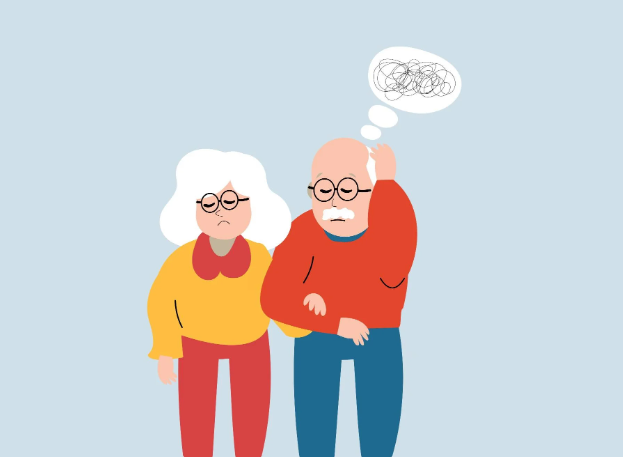
- Memory loss, which is typically noticed by a partner or someone else.
- Trouble communicating or finding the right words.
- Struggles with visual and spatial abilities, like getting lost while driving.
- Issues with reasoning or problem-solving.
- Having difficulty with complex tasks, planning, or organizing.
- Problems with coordination and motor functions.
- Experiencing confusion and disorientation.
- Changes in personality.
- Depression, which tends to be more common with conditions like Alzheimer’s,
- Anxiety.
- Behaving inappropriately.
- Paranoia.
- Agitation.
- Hallucinations.
Dementia rates increase substantially with age. “One in 7 people over 65 and 1 in 2 people over 85 develop dementia,” Keller says. “So, of course, advancing age by definition puts you at increased risk.”
Experts emphasize that while some forgetfulness associated with aging is normal, not everyone develops it. Thus, it’s critical to distinguish between mild forgetfulness and more serious memory issues like Alzheimer’s disease, as the National Institute on Aging explains in its infographic, “Forgetfulness: Normal or Not?” While “making a bad decision once in a while” or failing to make a single monthly payment, for instance, may be a normal part of aging, “making poor judgments and decisions a lot of the time” and persistent difficulties paying monthly bills may indicate Alzheimer’s disease.
“The first thing for people to note is that while we all forget things from time to time, what we’re looking for is a change in pattern,” says Dr. Richard Caselli, a neurologist and a professor of neurology at Mayo Clinic in Phoenix.
When family members see that kind of change in pattern—”and”it’s typically family members more than the patient themselves that start to notice things and become concerned—that’s when they should alert their physician,” he says.
Types
Apart from Alzheimer’s disease, there are several other types of it that can occur. These consist of:
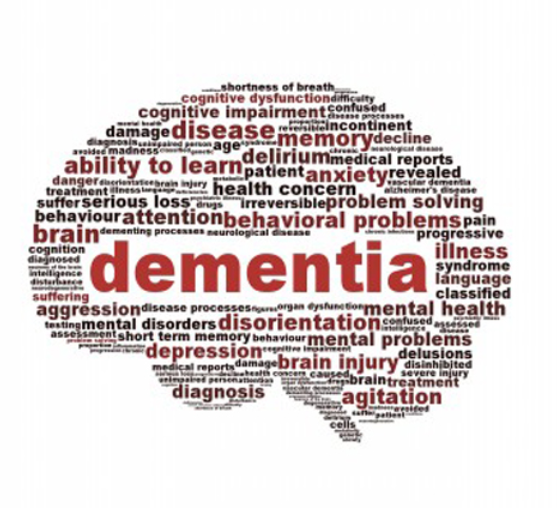
- Dementia involving blood vessels
- Dementia with a lewy body
- Dementia frontotemporal.
Diagnosis
If you’re concerned that you or a loved one may be exhibiting the early signs or symptoms of dementia, it’s important to seek prompt medical attention. A proper diagnosis is key, clinicians say, to distinguish between various causes and move forward.
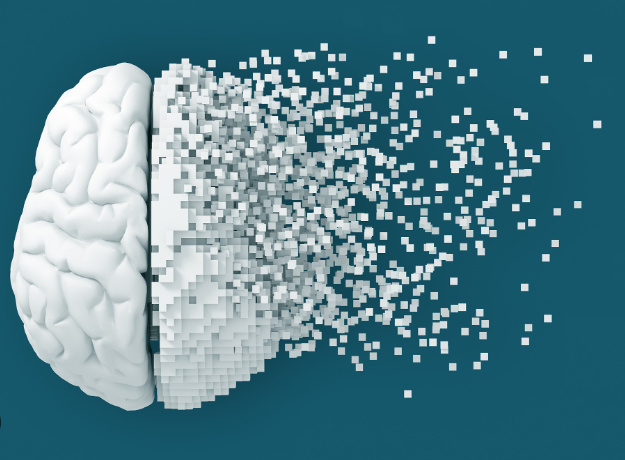
Although the most common forms of dementia are irreversible, for some people with dementia, the underlying causes can be treated or reversed. “Make sure first of all that it’s not something you can fix. That would be important—more important than anything else,” Caselli emphasizes.
Reversible causes of dementia and factors that may cause dementia-like symptoms include vitamin deficiencies like B12, thyroid problems, and certain infections, as well as depression, medication side effects, drug interactions, or drug or alcohol abuse.
That makes a thorough evaluation, including a physical exam, a health history, and tests such as brain imaging and bloodwork, important. While seeing your primary care doctor is a good place to start, frequently a referral to a neurologist is needed as well, along with testing, to confirm a diagnosis.
Treatment
For the majority of people who do have an irreversible form of dementia, including Alzheimer’s, vascular, Lewy body, or frontotemporal dementia, unfortunately, there is no cure.
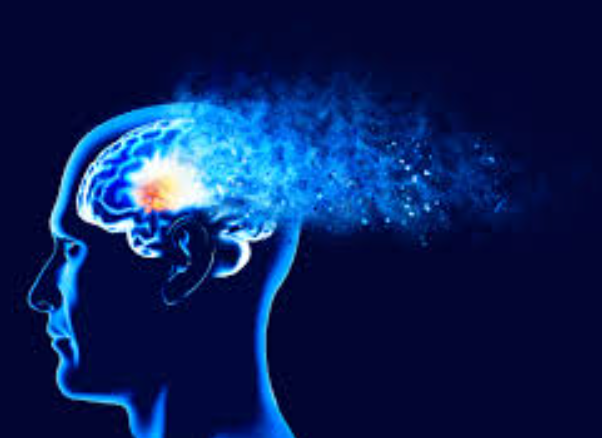
Still, difficult as it may be, having a diagnosis of a particular type of dementia allows the individual and their loved ones to plan for the future. Treatment focuses on managing some symptoms—to the extent possible—as well as considering lifestyle changes and other accommodations specific to the type of dementia a person has.
For example, for a person with Lewy body dementia, medications used to treat Parkinson’s disease may help in addressing motor symptoms, which can improve a person’s quality of life. “These medications, such as carbidopa-levodopa (Sinemet, Rytary, and Duopa), may help reduce parkinsonian signs and symptoms, such as rigid muscles and slow movement,” the Mayo Clinic notes. “However, these medications may also increase confusion, hallucinations, and delusions.”
Separately, some drugs approved for people with Alzheimer’s disease are also sometimes prescribed “off-label” for individuals with other forms of dementia in hopes of easing cognitive symptoms like memory problems. But there’s debate about the usefulness of these medications for people who don’t have Alzheimer’s and concern about exposing patients to unnecessary drug risks, while clinicians and patients struggle to make do with a lack of other treatment options. “They’re fairly benign medications, and let’s say, for argument’s sake, you have frontotemporal dementia and not Alzheimer’s disease. So your options are either to try one of these medications or not,” Caselli says. “It’s not like there’s some alternative.”
Also read: Amyotrophic Lateral Sclerosis, Or ALS: A Patient’s Guide to Amyotrophic Lateral Sclerosis, Or ALS
images source: Google
Disclaimer: The opinions and suggestions expressed in this article are solely those of the individual analysts. These are not the opinions of HNN. For more, please consult with your doctor.







